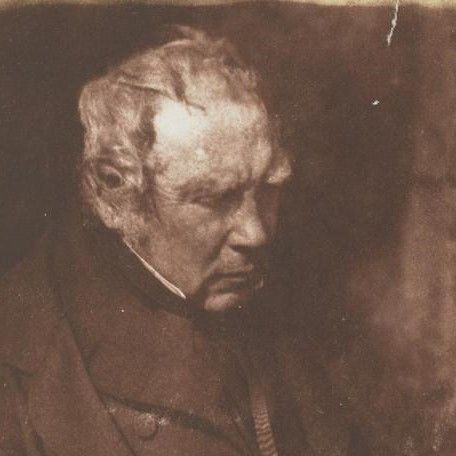Mary's Christmas: A Consoling Tale of Perseverance
Immanuel doesn't mean you with God - elevating humans to the luxury of proximity to deity - but rather God with us - God humbling Himself to the pauperism of unpopular, estranged humans. Immanuel, thereby, resonates with the 700 million in extreme poverty.

The events that unfolded leading up to the first Christmas and those that immediately followed may be quite familiar to us all. Surely, Christmas is about joy, peace and goodwill to all mankind (Luke 2:14), yet, what the birth of Jesus meant to Joseph and Mary is quite different to what it means to us now. It is not because we've lost sight of the true meaning of Christmas but because Joseph and Mary experienced the first Noel unlike any one of us.
The Virgin Shall Conceive
Can we imagine ourselves in the shoes of Mary? To realise that you are going to conceive a child when you are still a virgin and betrothed to be married? Or can we imagine ourselves in the shoes of Joseph? To realise that you are going to be the step-father of your fiancé's child? It certainly would've been a bewildering update for the family to realise that the engaged couple has unanimously come to believe that Mary didn't commit adultery but the child was conceived by God's act. They would've scratched their scalps off wondering: God was silent for 400 years and His restoration of revelation is a virgin conception in our family!? Mary may have even tried to hide her pregnancy from her family just as Sameera tried to hide her pregnancy from the hospital authorities in the movie 'Take Off'. They both would've been torn between savouring the joy of being a mother and the impending distress of being found, anytime by anyone, with child.
But it was a call to perseverance for Mary and Joseph. Throughout history, men and women called out by God to be key individuals of His grand plan had to weather storms of doubt, disapproval and disdain. This was the beginning of the series of pain and fleeing that was soon to follow. Just when Mary and Joseph thought they could bask in the joy of parenting Mary's firstborn, now that everything had settled down, came the command of infanticide by King Herod. The then ruler of the Jews threatened by the arrival of the wisemen to worship the newborn King of the Jews ordered a massacre of infant boys in Bethlehem (Mathew 2:2, 17).
Throughout history, men and women called out by God to be key individuals of His grand plan had to weather storms of doubt, disapproval and disdain.
As the trio fled for safety to Egypt, Mary and Joseph would've thought if any of Jesus' baby relatives were wailing in the pangs of anguish as Herod's genocide began in Bethlehem - a genocide meant to murder Jesus, a genocide because of Jesus 1. The fleeing family with an infant became refugees in Egypt. Even after Herod's death they couldn't return to Judea because of Herod's son Archelaus ruling over Judea. Eventually, they resorted to settle down in Nazareth of Galilee.
The Cursed New Born or Immanuel?
In pre-modern villages in India if the mother dies during delivery the infant tends to be looked down as a curse, a harbinger of death of her mother. This apprehension of the family/father has been reflected in movies too with most recent ones in memory being the movies '9' and 'Adam Joan'. Every pain and distress that Mary faced in her young life was because of Jesus; from the onset of being a virgin with child to fleeing to Egypt in the midst of genocide to settling away from home. The same can be said of Joseph too. He would've felt the urge to throw in the towel and give up on all this for a child he didn't father. Mary may have even thought in the midst of all this pain: is Jesus really Immanuel? Is God really with us? Is the infant a curse upon me?
It is no exaggeration, I think, to mark the first Christmas as Mary's Christmas as an homage to this young mother who received the word from God and held onto it for dear life. You and I may not be able to relate to what Mary went through. But her tale of perseverance beckons all mankind to the central message of Christmas: Immanuel, God with us. For she knew that when she kissed the face of her baby, she was kissing the face of God.
Wouldn't it have been better for the Most High King of the universe to be born into a family that had the means to face the challenges with ease? Wouldn't it have been better if Jesus killed demons and giants as an infant and fought off the incoming assassins of Herod as other tales and legends portray the heroic infancy of gods born on earth? But which struggling mother on earth would relate to tales of a supernatural infant who fought off demons and giants? If God is really with us, then shouldn't He be where we are, the way we are? Immanuel doesn't mean you with God - elevating humans to the luxury of proximity to deity - but rather God with us - God humbling Himself to the pauperism of unpopular, estranged humans. Immanuel, thereby, resonates with the 700 million in extreme poverty2.
This Christmas season, as the world braces for a surge in COVID and sag in employment, the message that shone upon Mary and Joseph shines upon us too: I AM with you. These are not the words of a distant deity demanding flowers, food and festivities for appeasement, but the soul gripping consolation that one who came down to us is with us through it all. And it is His greatest desire that we all be with Him just as He is with us (1 Timothy 2:4)
Endnotes:
- I am grateful to my friend Jacob Varghese (Reasons To Believe Asia-Pacific Chapter Officer, Bangalore) for this insight he shared during our morning commute.
- World Bank. (Updated: 2022, November 30). Poverty. The World Bank. Retrieved December 23, 2022, from https://www.worldbank.org/en/topic/poverty/overview; World Vision. (n.d.). Global poverty: Facts, FAQs, and how to help. Retrieved December 23, 2022, from https://www.worldvision.org/sponsorship-news-stories/global-poverty-facts





Comments ()